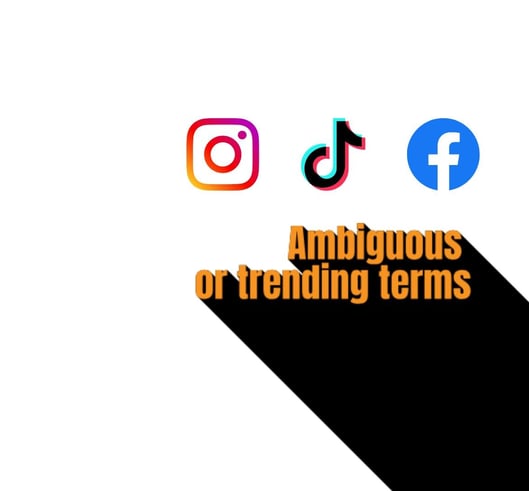Marketplace Idols: Influencers Who Shape Consumer Trends with Bacon's Insight
Explore how influencers shape consumer trends through language, connected to Francis Bacon's Idola fori. Learn why clarity in marketing builds trust and how brands can avoid misleading practices to foster consumer loyalty.
MARKETINGCASE STUDIES
Sameera Ajaz
11/19/20244 min read


The Idols of the Marketplace Reimagined for Marketing
Explanation of Idola fori
Bacon's Idola fori referred to the distortions of truth that occur through the misuse of language in public discourse. He argued that words are not neutral tools; instead, they are laden with meaning that can be twisted or misunderstood, leading to misconceptions. In Bacon’s view, these idols create confusion, hindering humanity’s pursuit of truth.
Application to Modern Marketing
In the world of contemporary marketing, the Idola fori are alive and well. Influencers and brands often use language that plays on emotions, exploits ambiguity, or builds on hyperbole to engage consumers. Terms like “all-natural,” “detox,” and “superfood” illustrate how language can be simultaneously captivating and misleading. This type of language appeals to consumers' desires but can ultimately lead them astray if the terminology lacks real, transparent meaning.
Marketers, driven by the need for differentiation and attention, may unintentionally or strategically harness these linguistic tactics to craft appealing, but often unclear, messages. As Bacon warned, the problem lies in the gap between the intended and perceived meaning, where consumers may be misled by how information is presented.
Case Studies-
The Good, the Bad, and the Idolized
The Informative Influencer
One clear example of effective, transparent communication is the rise of science-based influencers in the health and wellness space. Figures such as registered dietitians or certified trainers who share evidence-backed advice have gained significant followings due to their ability to demystify complex concepts. They avoid language that confuses and instead use clear, precise terms to empower their audiences. Brands that partner with these types of influencers often see a boost in consumer trust and brand loyalty because their messaging aligns with authenticity.
The Misleading Messenger
Conversely, some influencers build their platforms around ambiguous or trending terms, creating confusion rather than clarity. For instance, many beauty and health products are marketed with terms like “chemical-free” or “clean” without any regulated or scientific basis for these labels. Consumers, motivated by a desire for better health or ethical consumption, may be drawn to these claims but later feel misled when they realize these terms do not hold substantial meaning.
Brand Success Through Clarity
Brands such as Patagonia and Warby Parker stand out for their straightforward communication. These companies prioritize transparent messaging, clearly explaining their environmental initiatives and business practices. Their commitment to honesty strengthens consumer relationships and demonstrates that businesses can succeed without resorting to the Idola fori.
Trust Lost Through Idola fori
On the flip side, brands that lean too heavily on ambiguous language or trendy buzzwords often face backlash. For example, food and beverage companies that market their products with claims like “superfood” or “fat-burning” without proper substantiation can lose consumer trust once the façade is exposed. Such brands risk short-term gains at the expense of long-term credibility.
Lessons from the Past- Avoiding Modern-Day Idols of the Marketplace
Bacon’s Warnings for Today
Bacon’s observations provide a timeless reminder for modern marketers. His Idola fori serves as a caution against using language that obscures rather than illuminates. In today’s saturated market, where attention spans are limited, clarity should not be sacrificed for the sake of catchiness or virality.
Balancing Creativity and Truth
Creativity is essential for engaging audiences, but it should never undermine truth. Marketers can maintain this balance by being meticulous in their word choice and avoiding exaggerated or vague claims. Crafting stories around a product is part of good marketing, but these stories should reflect real benefits and transparent details, not overblown promises.
Best Practices for Marketers
Audit marketing language: Regularly review the language used in campaigns to ensure it aligns with genuine product attributes.
Prioritize education over exaggeration: Use informative content to clarify rather than cloud consumer understanding.
Engage with fact-checking: Validate the accuracy of all claims to maintain credibility.
Influence on Commerce and Consumer Trust-
The Idola fori’s Economic Impact
The economic impact of linguistic distortions in marketing is significant. Consumers who feel deceived by misleading language are less likely to remain loyal to a brand. This erosion of trust can translate into diminished sales, negative reviews, and damaged brand reputation. The relationship between language and commerce highlights the necessity of transparent communication.
Bridging the Gap with Clarity
Brands that emphasize transparent and clear messaging are more likely to build stronger consumer relationships. Consumers increasingly value honesty, and businesses that align with these expectations find themselves at a competitive advantage. Trust becomes a cornerstone that not only supports sales but fosters brand advocates who spread positive word-of-mouth.
Strategic Advantage
Avoiding the pitfalls of Idola fori can serve as a strategic advantage. Companies that lead with authenticity differentiate themselves in a crowded market. The result is not just a successful marketing campaign but an enduring brand legacy that resonates with informed consumers.
Closing Thoughts:
Looking Forward
As marketing evolves, so should the way brands communicate. With consumers becoming more discerning and aware of language's power, the future of successful marketing lies in transparency. Companies must align their messaging not just with what sounds good but with what is true.
The Role of Market Leaders
True market leaders will be those who speak plainly, build trust, and convey information that aligns with the values and expectations of their consumers. They will be known for their commitment to clear communication and their resistance to the easy trap of using misleading language for temporary gains.
Final Reflection
The Idola fori of Bacon’s time still resonate today, reminding us that language is more than a tool—it is a bridge between brands and their audiences. When used properly, it enhances understanding and trust. The challenge for marketers lies in balancing creativity with clarity, ensuring that their words uplift, inform, and guide consumers with authenticity.


The Power of Influence and Language
In today's fast-paced digital economy, influencers and prominent figures hold immense power to shape consumer behavior and trends. Their impact stretches beyond just endorsing products; it permeates the way we talk about them, form opinions, and make purchasing decisions. This dynamic can be linked to a centuries-old insight by philosopher Francis Bacon—specifically, his concept of the Idola fori, or Idols of the Marketplace. According to Bacon, language has the potential to distort truth, creating a haze that misguides public perception. Modern marketing practices often fall into this very trap, leveraging language in ways that blur the lines between reality and exaggeration. By re-examining Bacon’s wisdom, marketers can better understand how to communicate with authenticity and clarity, fostering trust among consumers.

aristolac © 2022
NSFW empowers the generation of tomorrow for a brighter future and hope for every individual.
Reframe your inbox
Subscribe to our newsletter and never miss a story.
We care about your data in our privacy policy.
